- Home
- Sarah Zettel
For Camelot's Honor
For Camelot's Honor Read online
For Camelot’s Honor
by Sarah Zettel
a division of F+W Media, Inc.
Table of Contents
Prologue
Chapter One
Chapter Two
Chapter Three
Chapter Four
Chapter Five
Chapter Six
Chapter Seven
Chapter Eight
Chapter Nine
Chapter Ten
Chapter Eleven
Chapter Twelve
Chapter Thirteen
Chapter Fourteen
Chapter Fifteen
Chapter Sixteen
Chapter Seventeen
Chapter Eighteen
Chapter Nineteen
Chapter Twenty
Chapter Twenty-One
Chapter Twenty-Two
Chapter Twenty-Three
Chapter Twenty-Four
Epilogue
Also Available
Prologue
The West Lands, Midsummer’s Eve, Anno Domini 350.
Maius the Smith sat beside the river, where the shadow of the bridge would fall come the morning. He kept a solitary vigil as the evening star rose up from the horizon. His cloak was thick, but the night was warm, and he had it slung back over his broad shoulders. The wind blew soft across his tattooed arms and shaved scalp, bringing the sweet smoke of the bonfires that burned on top of the hill. The rest of his folk feasted themselves nearly sick on pig’s flesh and strong beer. Later, they would dance and drink and cheer the long days, and make sacrifice of love and life to bring god and goddess down to walk among the grain.
Maius himself had not participated in the bonfire rites since he took the iron hammer from his father. He had a different watch to keep.
The bridge beside him was made of great stone slabs. Some said they were kin to the healing stones of the plain henges which were won from the scoti witches on the green isle. The Roman lords who forced their road beside the river looked at them and shook their heads, talking in their odd, flat tongue of levers and rollers, ropes and weights. They did not believe what Maius told them, but neither did they laugh. They lived in strange cities far from the good earth, but they knew well there were other worlds that were none of men’s making. They knew that those who dwelt there must have their roads, even as men must.
Twice a year, midsummer and midwinter, the crossing was open. Twice a year, one would come from that other world, tall and beautiful, or small and brown. They would have a thing to mend — a cup or a jewelled broach, a wheel or a sword. Their kind could not work metals, but they used them, all save iron which was man’s secret alone. Maius would take the thing and mend it and bring it back for the morning. That must be done or those others would be angry, and the great bridge would be taken away, and far more than that.
There was safety to be had dwelling beside the bridge, for there were things that would never come here, but there was danger too. They accepted that, and the chief stood surety for all of them, and Maius, and his son soon, paid tribute.
Hoofbeats sounded against the stone, and Maius surged to his feet. No man with wit about him stood unafraid before those that crossed from the twilight road, but Maius’s iron hammer hung from his belt. No elfshot could touch him, no glamour overtake him, not with iron his protector.
All the same, he whispered a prayer to Rhiannon and Mother Don as the shadow took shape on the bridge, crossing from the eastern side.
The horse drew near enough for Maius to see the rider, and the bulky smith felt his jaw drop. This was not the tall white steeds favoured by the Fair Ones. This was only … a horse. A good horse such that a Roman might not sneer at, but just a brown horse, as the man in the saddle was no more than a man wearing belted tunic of good cloth with a golden torque flashing around his throat and gold rings on his arms. He carried him a long spear the shaft of which was carved with runes so strange that Maius who knew the mysteries of his craft and more besides, could make nothing of them.
The rider reined his horse to a halt at the edge of the steps, and beast and man looked down on Maius, standing there gaping like a boy for the surprise of seeing a mortal man on this night.
The stranger smiled. “The gods be with you. Are you the one they call Maius the Smith?”
Maius gripped the cool iron of his hammer and gathered his wits together. “I am. Who are you that comes unafraid by such a road tonight?”
The question seemed to amuse the rider. “I am the king of the little country, Maius Smith, the ruler of the hidden lands and the secret way.” He chuckled at his own riddles.
For all he wore gold, he was just a man, and Maius’s astonishment turned fast to anger. “Well, Little King, I tell you, you should not be abroad, but should take shelter with other men.”
“But, Maius I have come to make your fortune.”
Maius’s brow furrowed. This stank. It stank like iron gone rotten with rust. What was this riddling man? “How’s that?” he asked.
“I have need of smith who knows the deeper mysteries, whose hands know how to work more than earthly gold. I have come a long way at a dangerous time to invite you to my service.” His hand reached beneath his cloak, and he tossed something small and dark at Maius feet. “Come willingly and this toy is the least reward you shall have.”
Maius did not take his eyes from the stranger, but he did bend down and feel through the grass until he found what had been thrown down. A great jewel lay heavy and cold in his palm, winking in the light of the rising moon. He could not tell its colour, but in the moonlight, it was so dark as to be almost black, and its facets were so sharp and so tiny he could not count them all.
Involuntarily, Maius thought of what he could do with such a gem. With gold enough he could work it into a ring that could grace the arm of the Governor’s wife, or the Governor himself. It was cattle, this gem, it was dowry for his daughters, goods for his house and pride for his wife, perhaps it was even a second wife to grace him. And more where this came from.
He looked up at the rider, and the man had a serious demeanour.
“I need you, Maius Smith,” he said, his words as weighty as the rich stone in Maius’s hands. “I need a man who is not afraid to touch the great workings, who can bend his craft to the arts invisible. No common man can aid me in my kingdom. You are the only one.” He stretched his hand out. “Come with my and I swear you will learn you mysteries beyond the telling and craft such as no smith has worked since the god Vulcan walked on the earth.”
The stranger’s word went straight to Maius’s pride of craft, and from there to his heart. He looked at the outstretched hand and all the promises overcame sober wisdom. Not even the shining ones, the tylwyth teg had offered him the secrets of the things he mended, much less such wealth. With such thoughts filling him, Maius grasped the hand the rider held out to him, and in that oldest gesture, he sealed the bargain.
Before Maius could pull his hand from that strong grasp, the rider swiftly touched the smith’s shoulder with the tip of his spear. The night shivered around them, split and folded in on itself, and smith and rider were swallowed whole.
The hammer which should have protected the life and soul of Maius Smith lay alone beneath the stars, waiting to be found with the morning.
Chapter One
Pont Cymryd, Anno Domini 521
“So, your mother welcomes the men from Camelot?”
A shadow fell across Elen where she knelt beneath the trees. She did not turn. She recognised the booming voice well. Elen sighed toward the morning’s treasure: an oaken stump that had yielded a magnificent and unexpected crop of crooked-capped mushrooms. Reluctantly, she stood, carefully brushing off the skirt of her dress, then her hands, tossing her b
lack braids over her shoulders and then smoothing down her green cloak.
It was only then she turned to face Urien, whose followers styled him y Tarw “the bull.” He certainly looked the part. He was a bluff and rugged man with thick red-brown hair and arms like a smith’s that were banded with blue tattoos and silver rings. He rode a shaggy, black beast of a horse. His iron knife and nail-studded club hung in plain view on his leather belt. His broad shoulders were only partly hidden by the green and brown striped cloak that was clasped with an silver broach in the shape of three cranes. Behind him, on uncombed ponies rode two of his men. Both were hulking creatures with thick shoulders and strong hands. The one on Urien’s right had a round face with a toad’s goggling eyes. The other was a starved wolf, his brown hair and beard equally tangled. He kept looking down the path as if he expected enemies to leap through the trees.
Elen wanted to ask him what he feared so, but she made herself pay attention to Urien. “Arthur’s ambassadors came with all signs of respect and asked for the hospitality of our house,” she said, keeping her tone carefully bland. Whatever she thought of him, Urien was the chief of the cantrev Eufaen, their neighbour immediately to the west. As such, he must be given at least the show of respect. “Is it your counsel, Sir that my mother should have turned them away?”
Urien’s face clouded. Not that it was not dark enough to begin with, Elen thought sourly to herself.
“It is known that since your father died your mother looks east.” Urien’s black horse stamped impatiently.
Elen’s jaw clenched. Father had thought well enough of the High King at Camelot, and mother had concurred, but it would accomplish nothing to remind this man of her father’s feelings. It was the shade of her father that kept him at bay, and that shade was stretched very thin these days.
“My mother has not yet shared her thoughts with me on this matter.”
“I don’t believe you.” Urien leaned over his mount’s neck to peer more closely at her. “In this cantrev, the women rule.”
Elen picked up her basket, although it was only half full and she had not yet picked the stump clean of its treasures. The earthy scent of mushrooms rose invitingly, making her stomach growl. “Do you wish to speak of this with my mother? You will find her in our house.” Elen did not have the patience for the verbal dance. She had work to do.
“Perhaps I will, that.” Urien took up his reins again. “As her daughter seems to know so little of what happens in her family’s house.”
Elen held her peace, but only with difficulty. Overhead, the wind whispered to the trees and their branches swayed back and forth. A crow cawed three times. An omen, surely, but of what? Elen shook her head.
“You are a bright spark,” Urien went on. “You look suspiciously on this embassage of Camelot’s, and I’ll wager your brother does too. He’s no fool either.”
Elen opened her mouth, but did not know what to say. It was no help at all that she was worried by the arrival of these men. Urien had a darkness in him, but at least it was a darkness she knew, like the storms in summer. What came from Camelot was utterly strange, and to her shame, that strangeness frightened her. But she would not give voice to any such thing before Urien.
The sound of footsteps on the path saved her from having to answer. Carys, her brother’s betrothed, picked her way down the crooked path, a pale basket resting on one ample hip.
Carys saw Urien and pulled up short. “My lord Urien,” she said, bowing her head respectfully. “I had not thought to find you here. I was coming to my sister, who has not yet broken her fast.” She rummaged beneath the white cloth that covered the basket’s contents and pulled out a fresh loaf of bread. Elen could smell its enticing warmth from where she stood. “Will you stay and eat with us, my lord?” Carys had an easy way with courtesy that Elen envied. She would make Yestin an excellent wife and do honour to their house.
Elen felt a rush of relief as Urien shook his head. “And I thank you, but I must continue to the house. I have words to speak with Arglwyddes Adara. Think on what has passed here, Elen,” he added before he sent his shaggy horse trotting down the path.
Once Urien was well out of earshot Carys asked, “And what is it you’re to remember?”
“To fear the East, I think.” As if we any of us needed reminding. She took a deep breath and with difficulty, turned her thoughts from Urien. “Have you been to the bridge yet?”
Carys shook her head. “I’ve the milk with me. Your mother said we should go together.”
Elen took up her own basket. “That should be done before we eat. Come.”
They took the path, heading in the opposite direction from the way Urien had gone. It sloped downwards through the thick trees, ambling as it went, in the way of a track that had been made by passing feet rather than by careful plan. Soon, it joined up with the broader way suitable for a cart, a herd of cows, or even a group of men on horseback. The birds called all around them, saluting the morning and each other. The sun slipped through the trees, making patches of warmth on cheek and shoulders as they passed beneath the leaves. A beautiful summer morning. Were it not for the shadow of Urien, Elen would be enjoying herself.
They did not have far to go before the greenwood opened onto the grassy river bank. The river Usk sparkled gold and silver in the morning sun. A pair of boats floated on it, with their men setting out lines to fish the waters as they flowed beneath the bridge. On the other side, beyond the rushes rolled green meadowland cut by the old Roman road that led all the way to the coast. Beyond that, rose the ranks of the Black Mountains, dark green and brooding, fencing in their valley and guarding their own.
Their cantrev was Pont Cymryd — the Taken Bridge — and the bridge that gave their land its name was an ancient thing. No graceful Roman arch, it was a pair of grey stone slabs lain end-to-end, each wide enough for a two men to ride abreast. Six pillars that had been sunk into the river bed supported the great stones a bare yard above the water. More than once, Elen had seen the spring floods wash over the bridge. The shallow steps had hollows worn in them from generations of feet. There was no rail or wall to keep the unwary from falling from one of the edges, only the wide water below.
There were those who said no one knew who had built the strange bridge. There were others who said it was known all too well. Mother was inclined to keep certain observances and customs in regard to it. Elen never found cause to fault this, whatever the travelling priests might have to say. One of them swore he would show the cantrev that all the old tales were nonsense, and on midsummer’s night, he rode his horse over the bridge, brandishing his cross and singing loudly. Priest and horse vanished into the darkness, and neither was ever seen again. They did find the cross, though, or so old Trent told her, on the near side of the river, floating forlornly among the rushes.
Then there was the even older story of Maius the Smith whose daughters were the founding of her own line. He had withheld what belonged to those whose lands lay across the bridge, and for punishment was taken away and never seen again. Only his iron hammer was found then. Ivo kept its head wrapped in white linen at his forge.
She and Carys were not the first to visit the bridge this morning. Bouquets of flowers, little heaps of grain and even a few late strawberries had been placed beside the worn steps. Most other days, there would be men at the bridge, taking the toll from any bringing goods or cattle across. Not today. Today, all could pass freely, until sunset. When dark came, no one would set foot on the bridge. Tonight, the bridge belonged to those who placed it there. In other cantrevs and other lands, tonight folk would light fires, dance and feast and celebrate the summer and the long, bright days. The folk of Pont Cymryd would close themselves up in their houses and their hall and leave the night to itself.
Carys set her basket down, removing the cloth to reveal a clay jar of milk and four small white flour cakes alongside the bread. Elen took these offerings out and set them beside the others.
Her encounter with Urien s
till rested heavy on her mind. “Abide, abide,” she whispered the ritual words reverently as she set milk and white cakes on the soft clover. “And let no trouble come to our house this year.”
The river Usk flowed past wide, silver, and calm, but the wind blew hard, whipping her cloak out behind her and carrying the smell of rain from the hazy horizon. Elen set her jaw and turned away towards the woods. The future would bring what it might. Until then, there was work to be done. Carys saw Elen’s mood and did not attempt to talk. She just rummaged in her basket for the bread. The scent rose in a delicious cloud as as Carys tore it open. She handed Elen a goodly portion so they could eat while they walked. It truly was a beautiful morning with spring turning fast into summer. The people of the cantrev were waking to their tasks, and the road became crowded with beasts and their keepers heading down to the riverside to drink or graze, or to make their own offerings. Pleasant greetings and snatches of gossip and song, along with the good bread in her stomach lightened Elen’s mood as they turned up the gentle hill toward home.
The dwellings of the cantrev’s people clustered around the high house like pebbles scattered around a boulder. Smoke rose from the holes in the thatched roofs. The clatter of voices, both human and animal competed with the noise of the thousand tasks of living. Sheep bleated, cattle lowed, pigs squealed and grunted. A sharp tang on the wind and a metallic clanging said Aeddan was at his forge. The west was one great carpet of green with the new grain almost knee high. Men and women were out with their hoes, chopping out the weeds, inspecting the stalks and new-formed heads to see that they were strong and there were no early blights. Mali stood in her doorway, sweeping dust vigorously back out across the threshold. A noisy flock of grey and black geese waddled fussily past followed close by Nia with her willow wand switch. Her belly was huge with her first child nestled safe within. She smiled and called out to Elen who stopped and laid her hand on the child. Elen was the cantrev’s midwife, taking over the duties her mother could no longer perform.

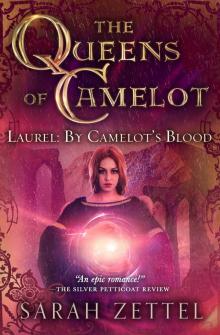 Laurel
Laurel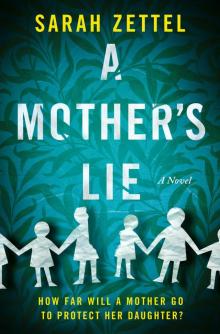 A Mother's Lie
A Mother's Lie Playing God
Playing God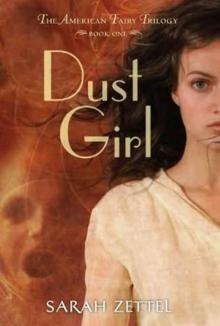 Dust girl
Dust girl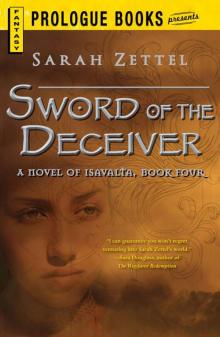 Sword of the Deceiver
Sword of the Deceiver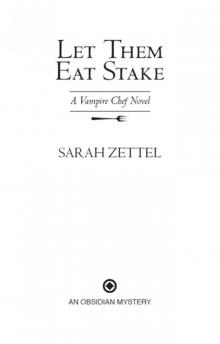 Let Them Eat Stake: A Vampire Chef Novel
Let Them Eat Stake: A Vampire Chef Novel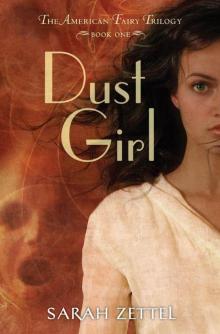 Dust Girl: The American Fairy Trilogy Book 1
Dust Girl: The American Fairy Trilogy Book 1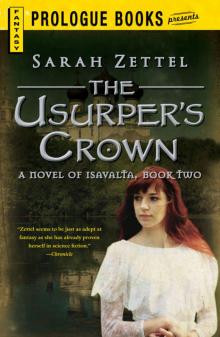 The Usurper's Crown
The Usurper's Crown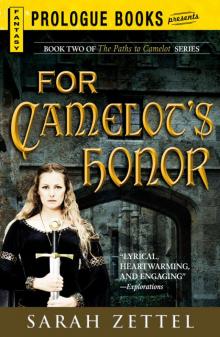 For Camelot's Honor
For Camelot's Honor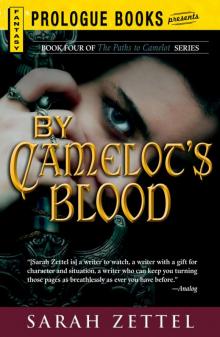 Camelot's Blood
Camelot's Blood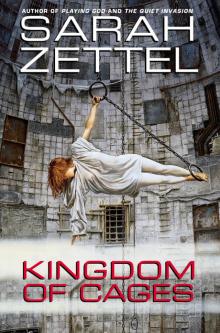 Kingdom of Cages
Kingdom of Cages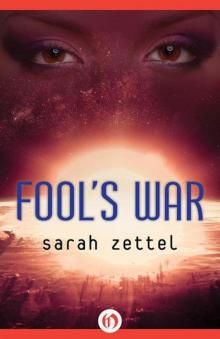 Fool's War
Fool's War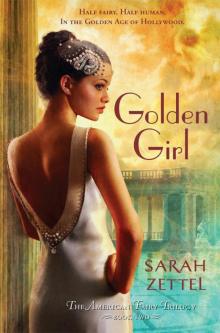 Golden Girl
Golden Girl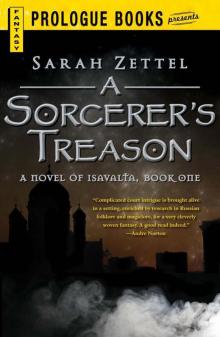 A Sorcerer’s Treason
A Sorcerer’s Treason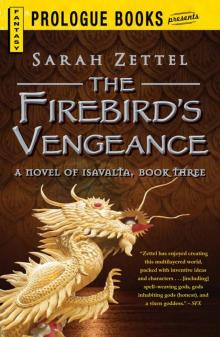 The Firebird's Vengeance
The Firebird's Vengeance A Taste of the Nightlife
A Taste of the Nightlife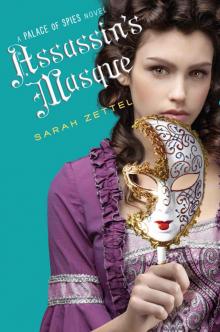 Assassin's Masque (Palace of Spies Book 3)
Assassin's Masque (Palace of Spies Book 3)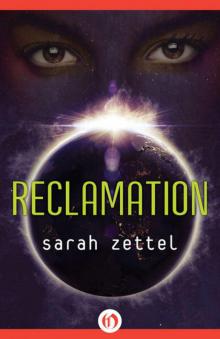 Reclamation
Reclamation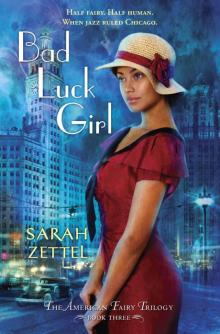 Bad Luck Girl
Bad Luck Girl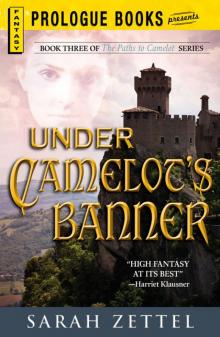 Under Camelot's Banner
Under Camelot's Banner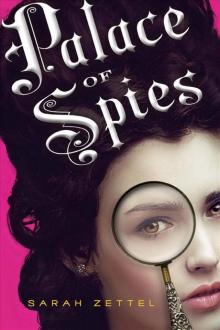 Palace of Spies
Palace of Spies Dangerous Deceptions
Dangerous Deceptions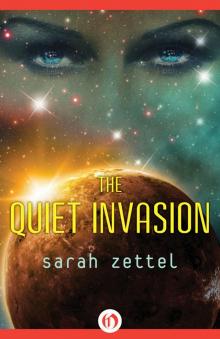 Quiet Invasion
Quiet Invasion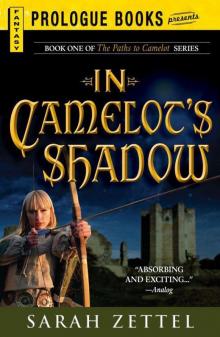 In Camelot’s Shadow: Book One of The Paths to Camelot Series (Prologue Fantasy)
In Camelot’s Shadow: Book One of The Paths to Camelot Series (Prologue Fantasy)